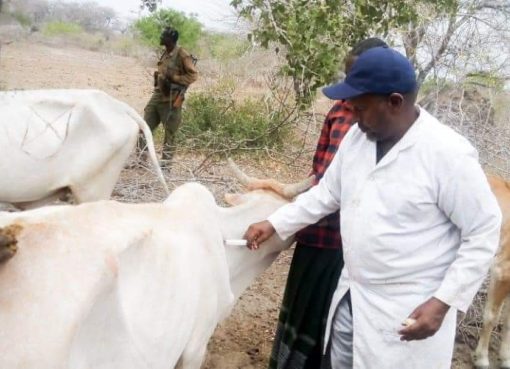The Agricultural Finance Corporation Board Chairman, Franklin Bett has said the corporation will not waive loans advanced to farmers and warned defaulters to brace themselves for stiffer penalties.
Speaking during a farmers training workshop at the Agricultural Training Centre in Kitui Town on Thursday, Bett said farmers owing loans will have to service them as per the loan agreement.
He said the move followed a deliberation between the financial services institution and the national government to stop waiving loans to enable the corporation to recoup enough money to support other needy farmers.
“Let every farmer who has secured a loan from AFC be warned that there will be no waivers anymore. Anybody who wants financial support from us must be ready to pay back so that other Kenyans can benefit,” Bett said.
The former legislator said that it was immoral for the government to offset loans for individual defaulters using the exchequer, the taxpayers’ money while other farmers struggle to service theirs.
Bett reiterated the institution’s resolve to help boost the livelihoods of Kenyans by empowering them to be more productive, alleviate poverty and create more employment in the country.
Hailing the partnership with AFC, the Deputy Director UN Women Kenya Country Office, Karin Fueg said that the training of farmers will help address gaps in women financial inclusion through training and information sharing.
“I am convinced that with more women accessing credit to improve their agribusiness, they will have more income at their disposal,’ said Fueg.
She noted that this income will improve overall households’ well-being from nutrition, health and education benefits for the household members and in general contribute to the realisation of the Big Four Agenda.
Meanwhile, poultry farmers in Kitui County have decried massive importation of eggs from Uganda, claiming the cheap eggs have made it difficult for them to find market for their produce.
The farmers said the influx of imported eggs was undercutting their small-scale businesses and urged the national government to ban importation of the poultry product so as to cushion them from unfair competition and losses.
“Kitui poultry farmers are struggling to break even due to high costs of feeds and low returns as cheap imports shrink prices and they urge the government to ban the importation,” said Fredrick Mbithi, a poultry farmer for the last 40 years.
Mbithi said the cheap eggs from Uganda have flooded the market and created a glut as farmers count their losses.
“I call upon the government to listen to the outcry of farmers to block Ugandan imports or tax them to stabilise local prices to enable us break even in this competitive sector,” said Mbithi.
He lamented that the cheap eggs have flooded the market, suppressing prices adding that the cost of production in Kenya majorly hinges on high excise duty imposed on feeds and drugs’ imports.
“Many poultry farmers are not even able to buy chicken feed from the sale of eggs. We are forced to dig deeper into our pockets to buy chicken feed, as the money we get from the sale of eggs is not enough to sustain the venture,” said Japheth Musyoki.
Musyoki said poultry farmers in Kenya are a frustrated lot, and the government has been turning a blind eye on them, unlike maize farmers, who are given priority.
“The government needs to intervene to ensure that the cost of feeds in the country is lowered and subsidise the cost of poultry vaccines to encourage more farmers to engage in production,” he said.
By Yobesh Onwong’a




